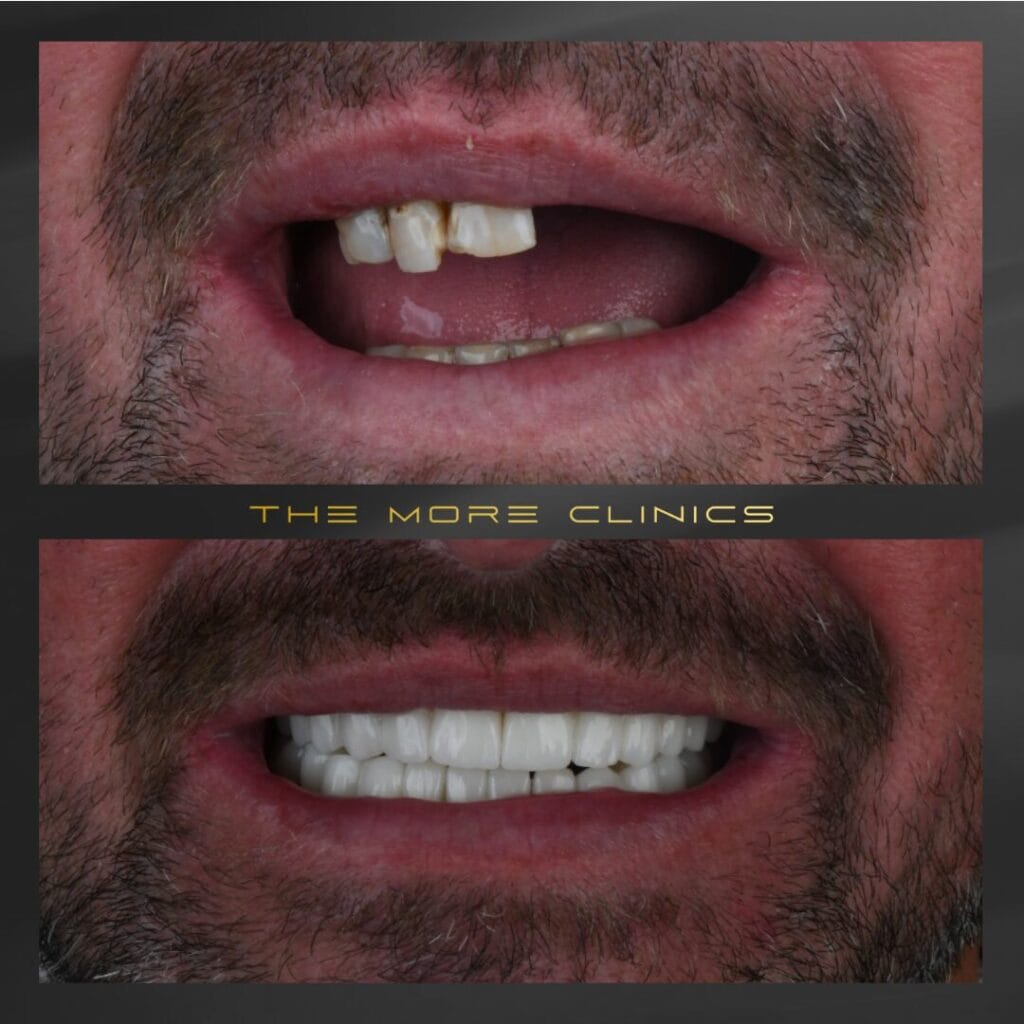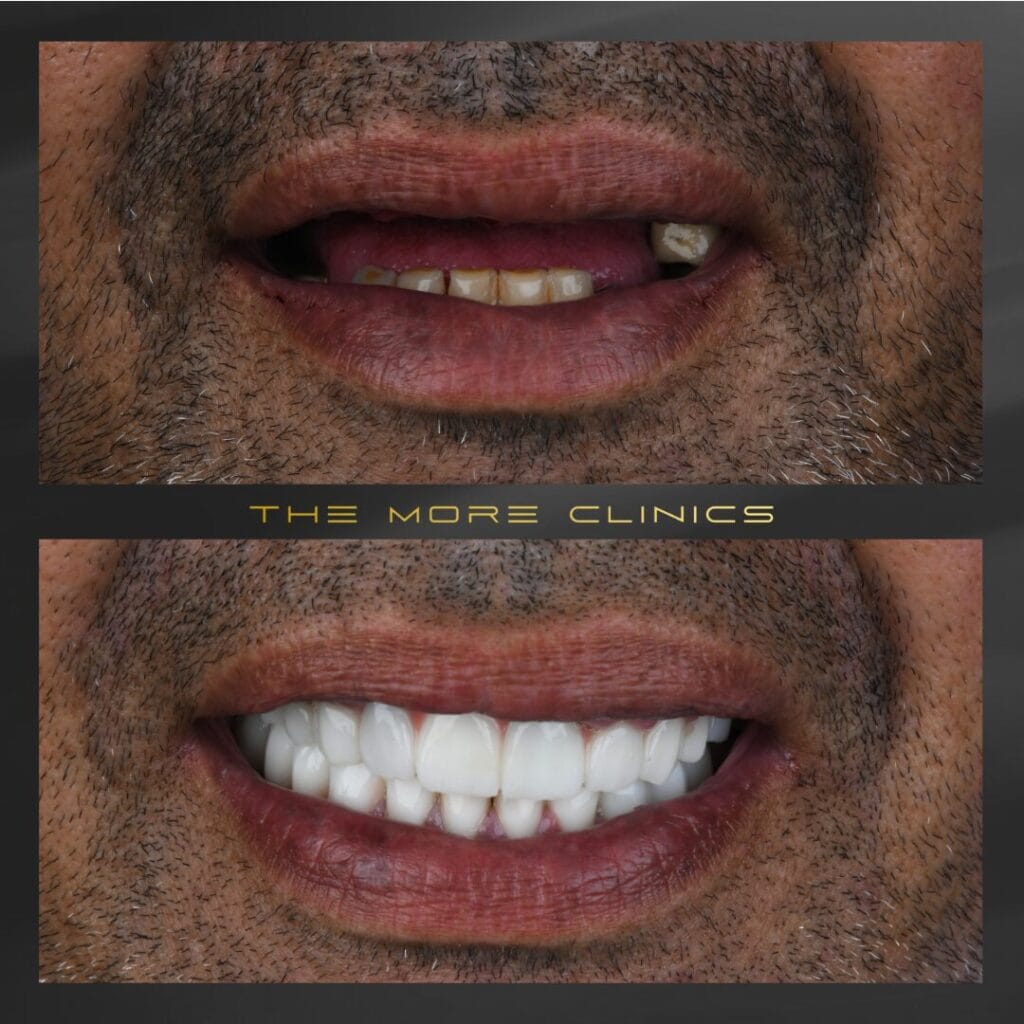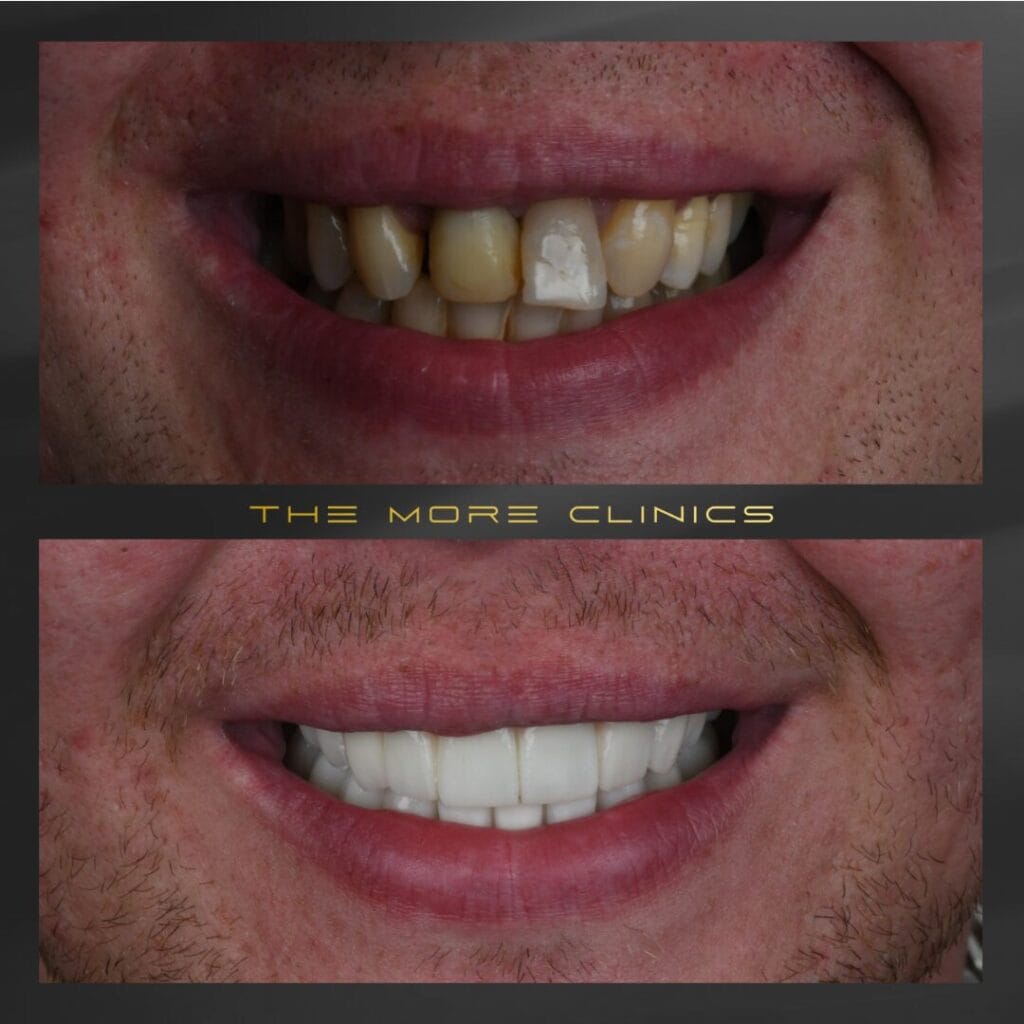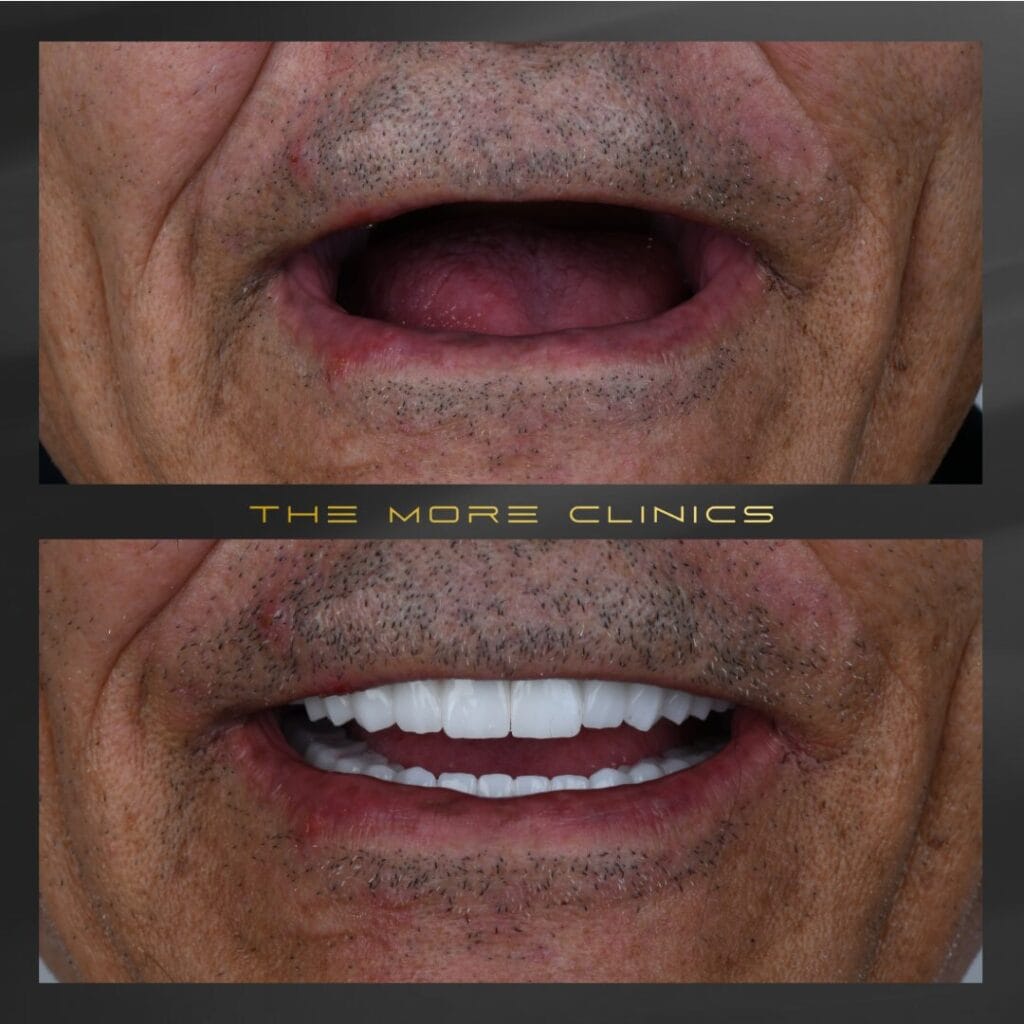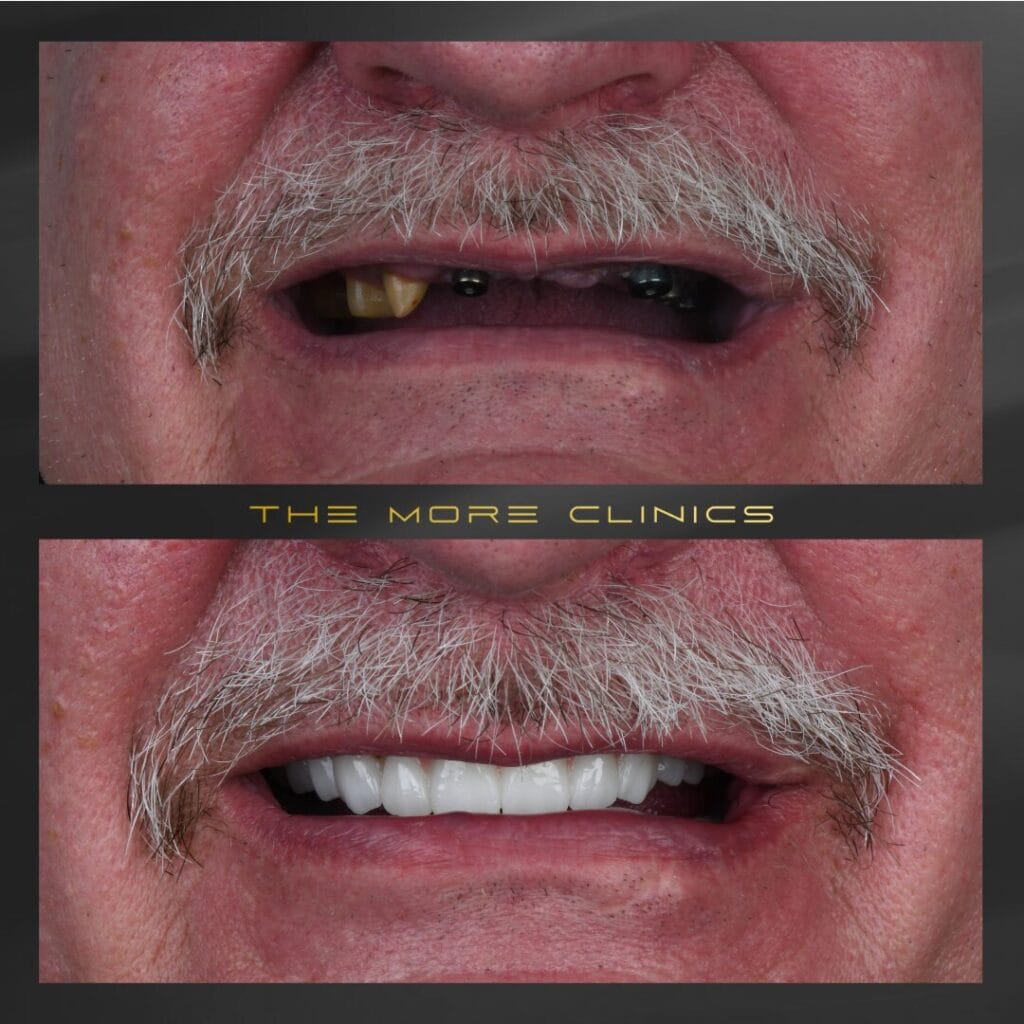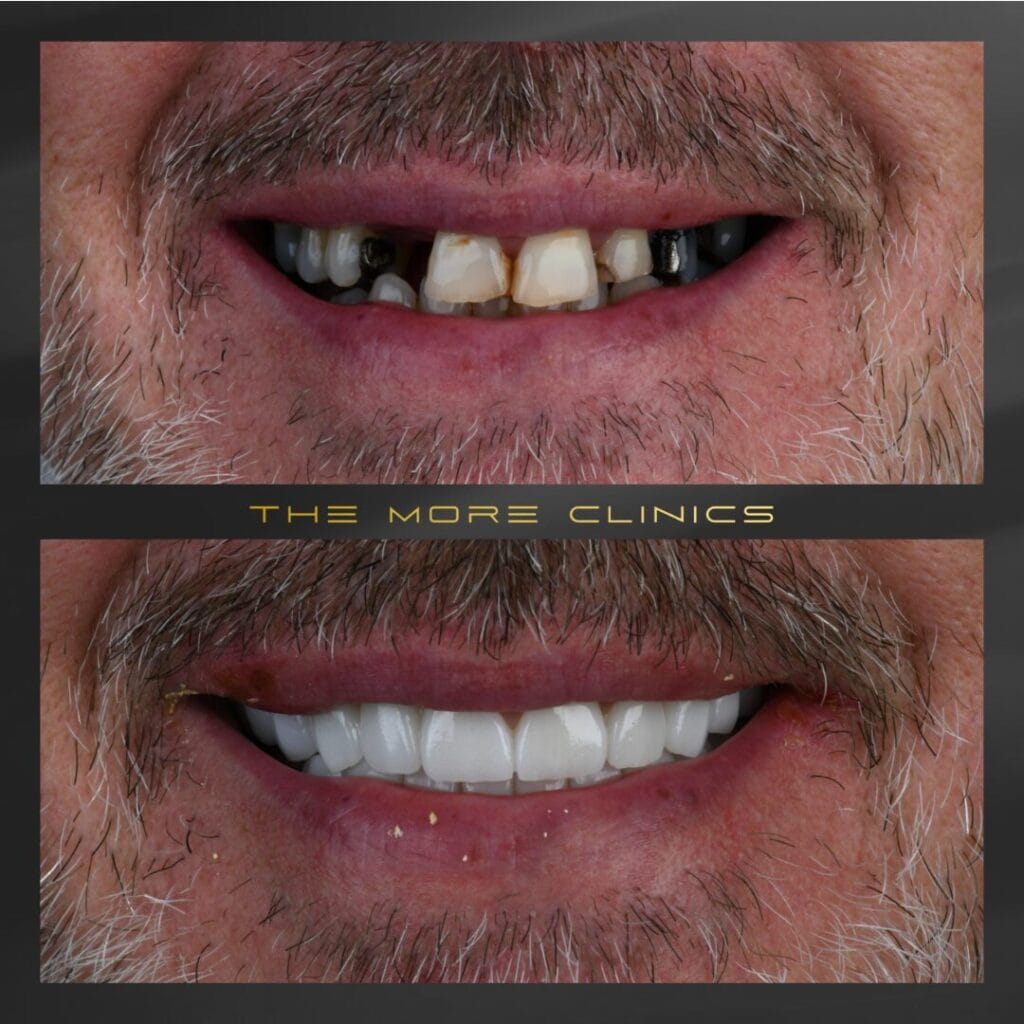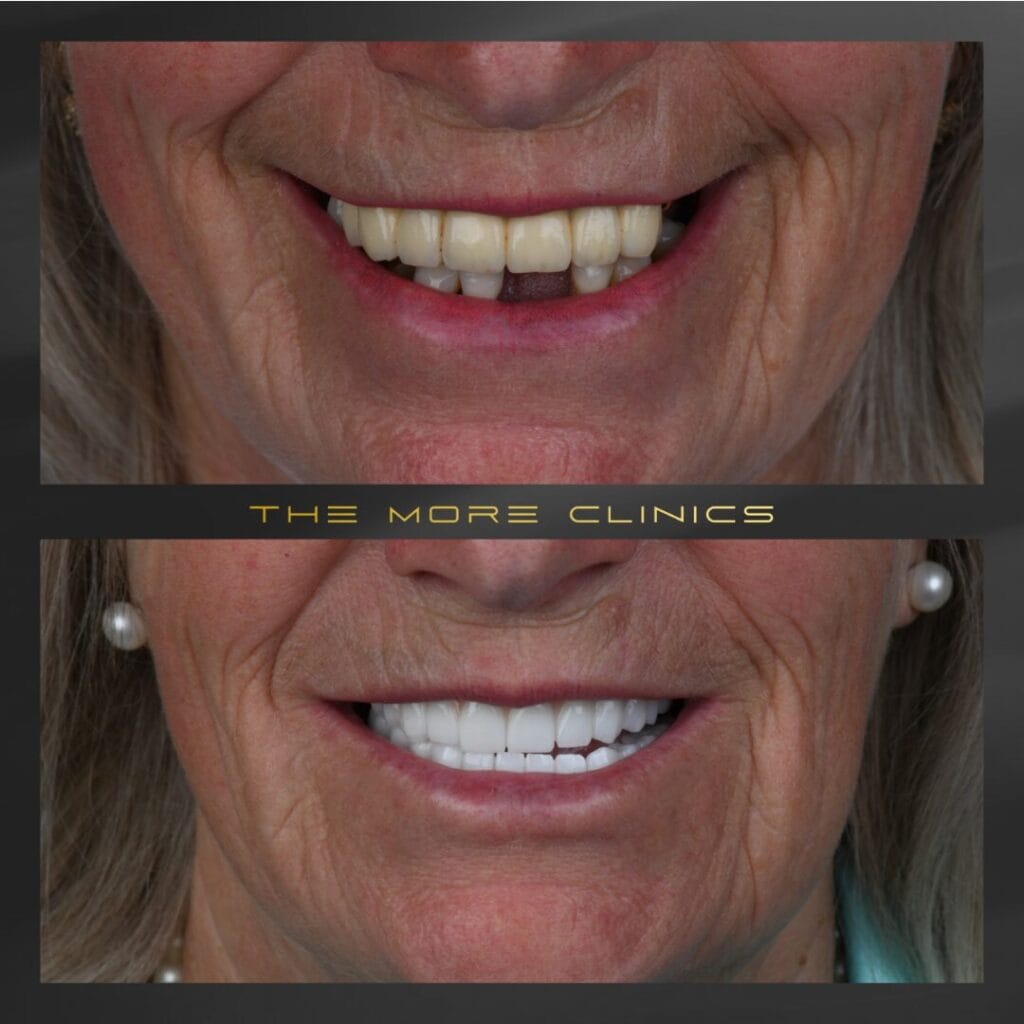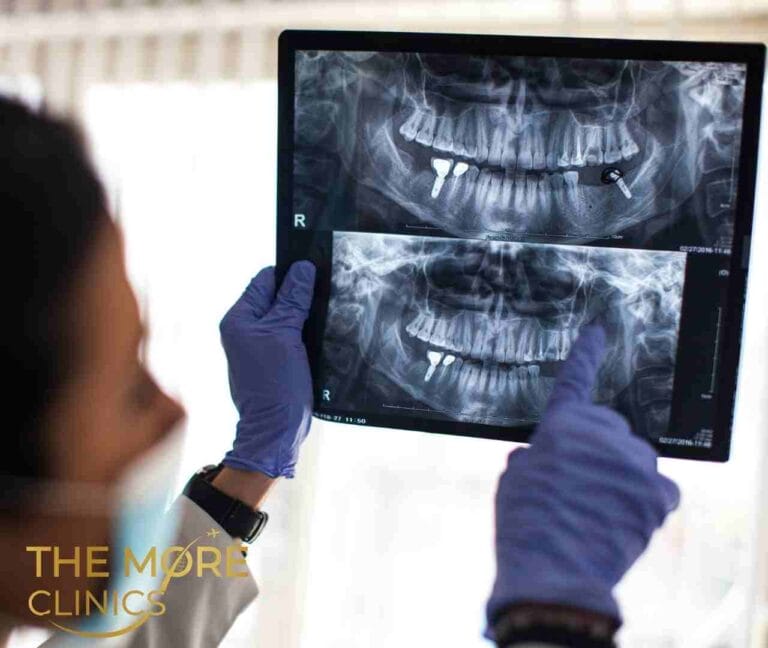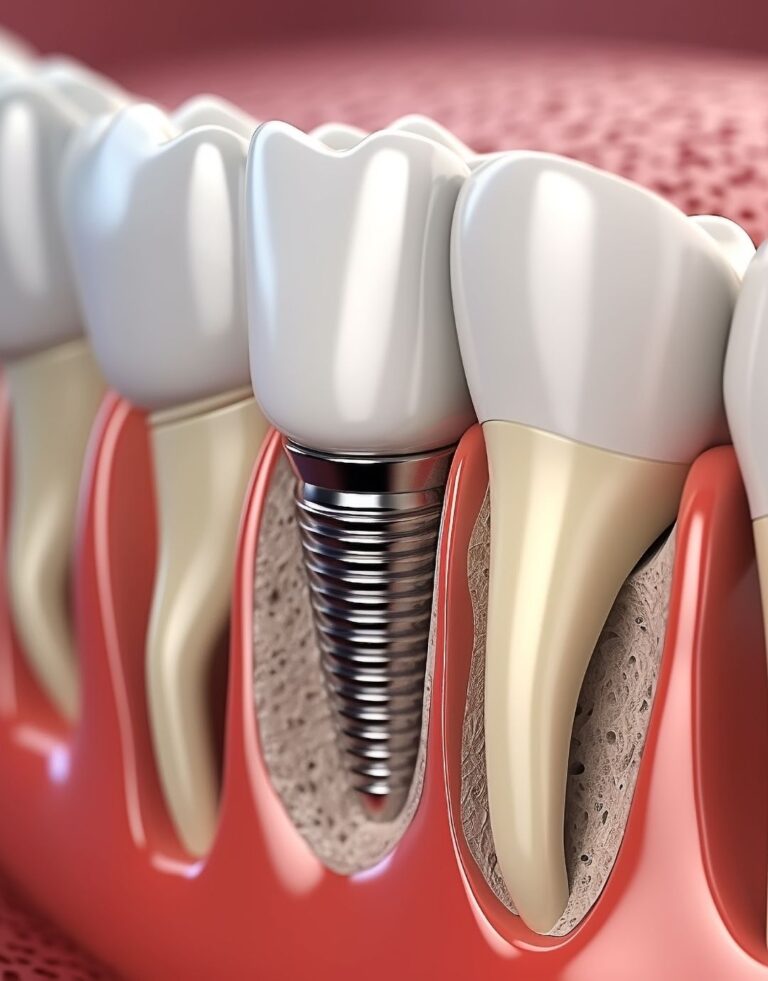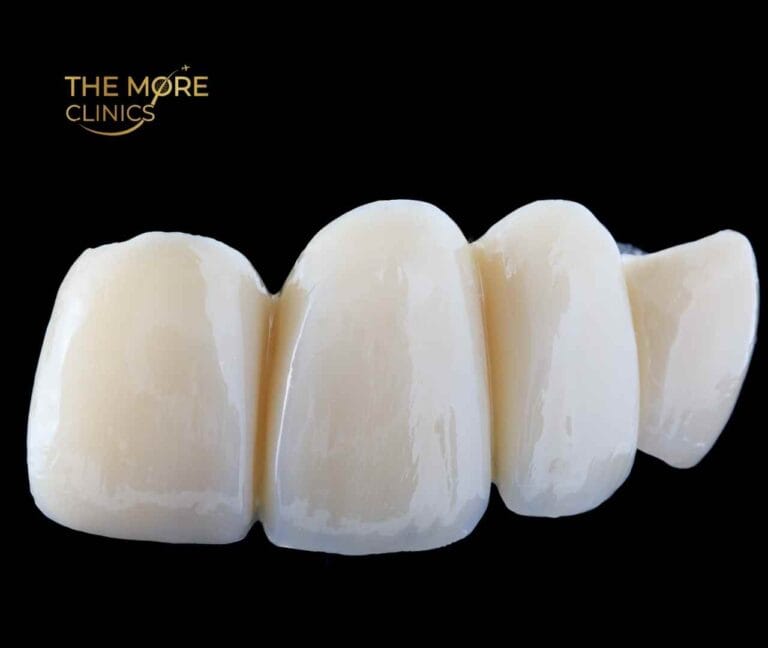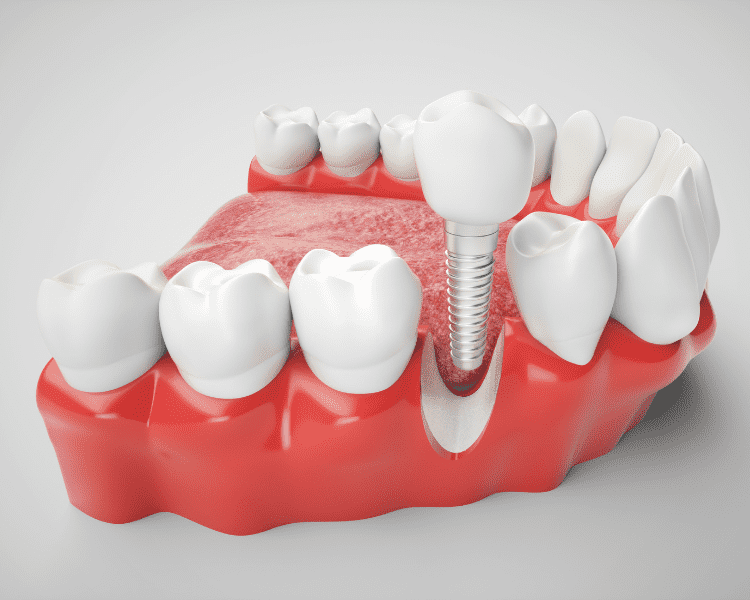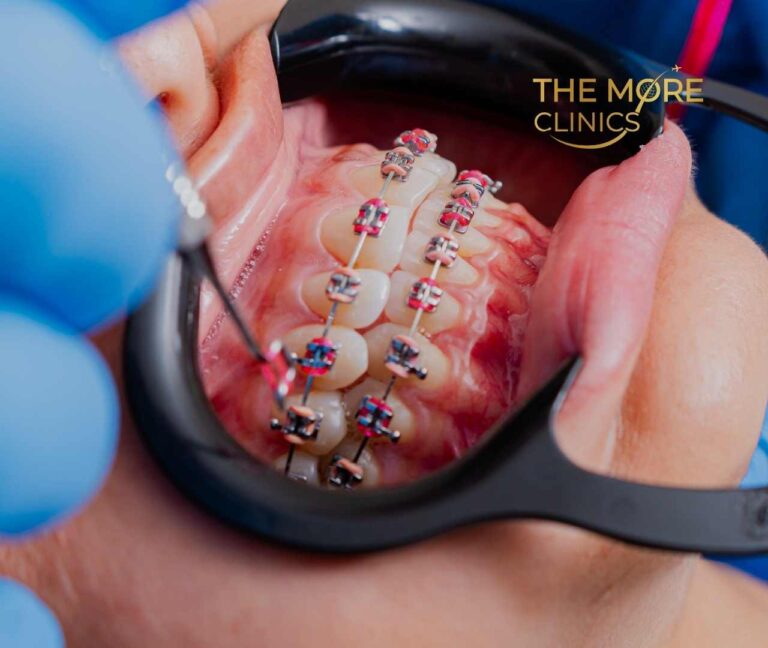Dental Crowns Guide: All You Need to Know
Dental crowns are versatile dental restorations that can effectively address a range of dental issues, from restoring damaged or decayed teeth to improving aesthetics and function. In this comprehensive guide, we will explore all aspects including crown types, candidacy criteria, advantages, potential risks, the step-by-step procedure, essential aftercare tips, and the associated dental crown cost. Discover how dental crowns can transform your smile and boost your dental health. Bonus: Dental Crowns Before and After results!
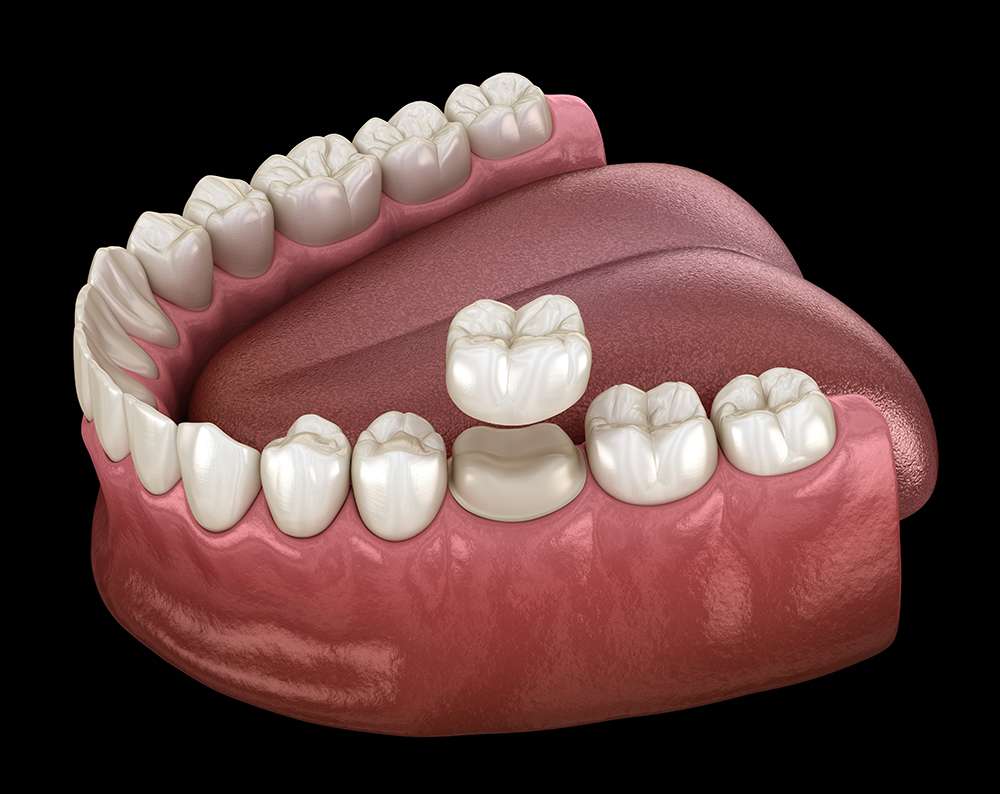
What Are Dental Crowns?
Dental crowns, also known as tooth caps or dental caps, are custom-made prosthetic devices that cover the entire visible surface of a damaged tooth, encasing it like a protective cap. They are designed to restore the tooth’s shape, size, strength, and appearance while providing added protection and durability. They can even be used to replace missing teeth as part of dental bridges.
(Related Post: Dental Bridge Guide)
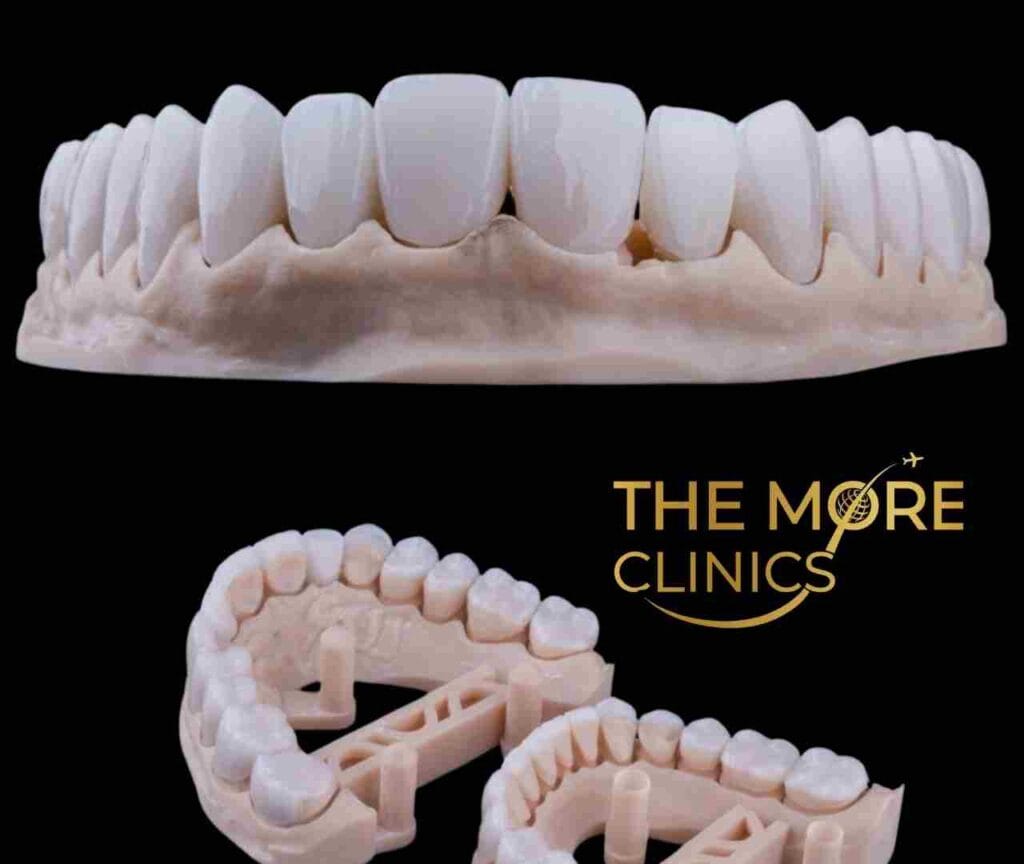
When Might You Need Dental Crowns?
Dental crowns are a versatile solution for individuals with various dental issues, such as:
- Severely decayed or damaged teeth that cannot be restored with fillings.
- Fractured or chipped teeth that need reinforcement and aesthetic improvement.
- Teeth with large fillings that require additional support and protection.
- Discolored or misshapen teeth that affect the overall smile aesthetics.
- Dental crowns are commonly used in conjunction with dental implants to replace missing teeth. The implant serves as an artificial tooth root, providing a stable foundation for the dental crown to be placed on top, restoring both function and aesthetics.
Types of Dental Crowns
Dental crowns come in various materials, each with its unique advantages and applications. For More Information and visual examples of Types please go to our Guide.
Some common types of dental crowns include:
| Types of Dental Crowns | Pros | Cons |
|---|
| Porcelain Crowns | – Exceptional aesthetics, closely resembling natural teeth. | – Susceptible to fractures and chipping. |
| – Biocompatible and well-tolerated by gum tissue. | – Limited durability, especially for back teeth. |
| – Ideal for front teeth restorations. |
| Metal Crowns | – Highly durable and resistant to wear and tear. | – Aesthetic concerns, not suitable for visible teeth. |
| – Requires minimal tooth reduction. | – Potential allergy risk to certain metals. |
| – Long-lasting, with decades of use possible. |
| Porcelain-Fused-to-Metal (PFM) Crowns | – Combines metal strength with porcelain aesthetics. | – Aesthetic limitations, possible gray line at the gumline. |
| – Versatile for both front and back teeth restorations. | – Can cause gradual wear on opposing teeth. |
| All-Ceramic Crowns | – Exceptional aesthetics for a natural look. | – More prone to fractures compared to other materials. |
| – Metal-free, suitable for patients with allergies. | – Not recommended for molars under heavy chewing forces. |
| – Requires minimal tooth reduction. |
| Zirconia Crowns | – Extremely strong and resistant to chipping. | – Requires more tooth reduction due to thickness. |
| – Offers a natural appearance with translucent quality. | – Can cause wear on opposing natural teeth. |
| E-Max Crowns | – Excellent aesthetics with exceptional translucency. | – More suitable for front teeth and smaller restorations. |
| – Known for strength and longevity. | – Relatively more expensive compared to other options. |
The Step-by-Step Dental Crown in Antalya Procedure
Initial Consultation
Your journey to a beautiful smile with dental crowns begins with a thorough consultation with your dentist. During this visit, your dentist will evaluate your dental health, discuss your smile goals, and recommend the most suitable crown type for your needs.
Tooth Preparation
To accommodate the dental crown, a small portion of the tooth’s enamel is removed. Your dentist will then take impressions of the prepared tooth to create a custom crown that fits perfectly.
Temporary Crown Placement
While your permanent crown is being fabricated in a dental laboratory, you will receive a temporary crown to protect the prepared tooth.
Crown Placement
Once your custom crown is ready, your dentist will remove the temporary crown and bond the permanent crown to your tooth using dental cement.
Dental Crown Cost
The cost of dental crowns can vary depending on several factors, such as the type of crown, the dentist’s expertise, and your location. Dental crowns in Antalya, Turkey, offer an attractive and cost-effective option for patients seeking high-quality dental restorations.
Dental Crown Cost Comparison
Dental Crown Cost Turkey average around 70% lower than in other countries. For instance, porcelain crowns cost approximately $150 – $250 in Antalya, Turkey versus $800 – $1100 elsewhere. The savings are even greater for metal or zirconia crowns which can be as much as 70-80%.
Dental Crown Cost in Usa average around 60% higher than in Turkey. For instance, porcelain crowns cost approximately $900 – $2000.
Dental crown Cost in Uk average around 70% higher than in Turkey. For instance, porcelain crowns cost approximately $750 – $1000 in UK versus $600 – $1000 in Antalya, Turkey. The savings are even greater for metal or zirconia crowns which can be as much as 50-60%.
Dental Crowns Before and After: Transformative Results
Witness the remarkable dental crowns before and after transformations of individuals who have undergone dental crown procedures at The More Clinics in Antalya, Turkey. Experience the power of dental crowns to rejuvenate smiles and improve dental health.
Visit our Dental Crowns Before and After Gallery!
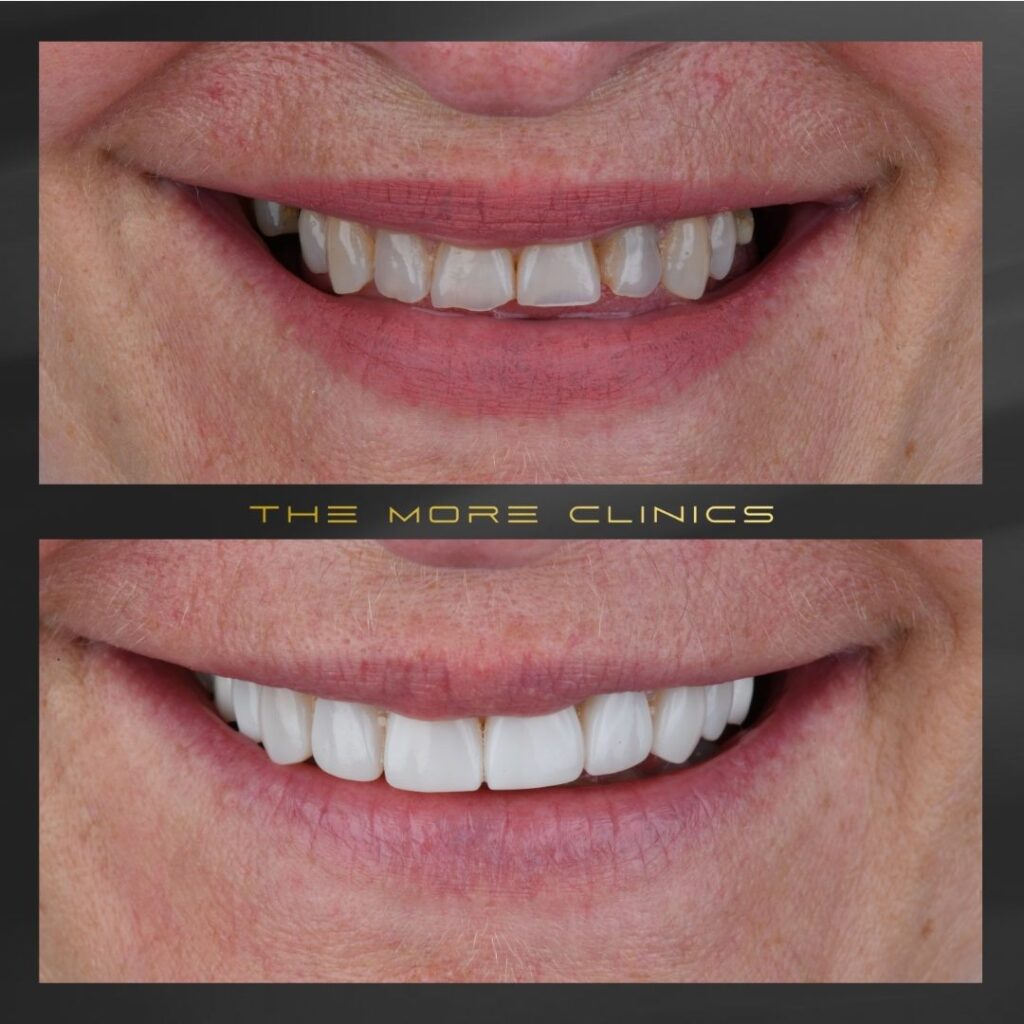
Dental Crowns Before and After Photos
Get your All-Inclusive Dental Crowns Turkey Package Deal!
Benefits and Risks of Dental Crowns
Benefits of Dental Crowns
Dental crowns offer a host of advantages for patients seeking to improve their dental health and appearance:
- Enhanced Dental Function: Dental crowns can restore the function of damaged teeth, enabling better biting and chewing.
- Natural Appearance: With modern materials, dental crowns can closely mimic the natural color and shape of your teeth, providing a seamless blend with your smile.
- Increased Tooth Protection: Crowns cover and protect weakened teeth, preventing further damage and potential fractures.
- Long-lasting Solution: With proper care, dental crowns can last for many years, offering a durable and reliable dental restoration.
Risks of Dental Crowns
While dental crowns are generally safe and beneficial, there are some potential risks to consider:
- Sensitivity: Some individuals may experience temporary tooth sensitivity after crown placement, especially with hot or cold substances.
- Allergic Reactions: In rare cases, individuals may be allergic to certain crown materials, such as metal alloys.
Aftercare Tips for Dental Crowns
To ensure the longevity and optimal function of your dental crowns, follow these essential aftercare tips:
- Practice good oral hygiene by brushing and flossing regularly to maintain the health of your crowned teeth and surrounding gums.
- Avoid chewing on hard or sticky foods that may damage the crown.
- Schedule regular dental check-ups to monitor the condition of your dental crowns and address any concerns promptly.
If you are curious please see our guide for Aftercare of Crowns.
Your Dental Location for Dental Crowns Antalya: The More Clinics
Dental crowns are a versatile and transformative dental solution that can restore damaged teeth, enhance aesthetics, and improve dental function. With various crown types available, each tailored to individual needs, dental crowns offer a durable and natural-looking restoration. If you seek a radiant, healthy smile, explore the possibilities and benefit from our dental crown cost friendly solutions at The More Clinics in Antalya, Turkey. Contact us today and let us schedule your Free Consultation!
GET A FREE CONSULTATION!
Let’s Start Planning Your Treatment %100 Guarantee Results.
SOURCES:
Journal of American Dental Association (ADA): “Wearing a Crown”
National Library of Medicine, Pubmed: “The clinical success of zirconia-based crowns: a systematic review”
Scandinavian Division of the International Association for Dental Research: “Retrospective clinical study of tooth‐supported single crowns: A multifactor analysis”
National Library of Medicine, Pubmed: “Clinical evaluation of monolithic zirconia crowns for posterior teeth restorations”
Journal of Research in Medical and Dental Science: “Zirconium Restorations-A review”
Cleveland Clinic: “Dental Crowns”
International Journal of Dentistry: “Retention and Clinical Performance of Zirconia Crowns: A Comprehensive Review”
Zirconium Restorations-A review
HOW THE MORE CLINICS KEEP THE CONTENT UP TO DATE:
Our dedicated medical and editorial teams work tirelessly to stay informed about the ever-evolving world of health news. By rigorously tracking the latest research, clinical guidelines, and significant developments across various medical fields, they ensure that our content remains accurate, relevant, and up-to-date. This includes reviewing peer-reviewed studies, consulting with healthcare professionals, and monitoring advancements in medical technology. Their meticulous efforts and attention to detail allow us to provide you with trustworthy, reliable information that you can depend on to make informed decisions about your health and well-being.
However, we still insist on getting a healthcare professional’s opinion before you make any decision about your health. Consulting with a qualified expert ensures that the choices you make are informed, safe, and tailored to your individual needs.
Last Uptaded at: January 3, 2025
Medically Reviewed by: DR ONUR ADEMHAN, ORAL AND MAXILLOFACIAL SURGEON

